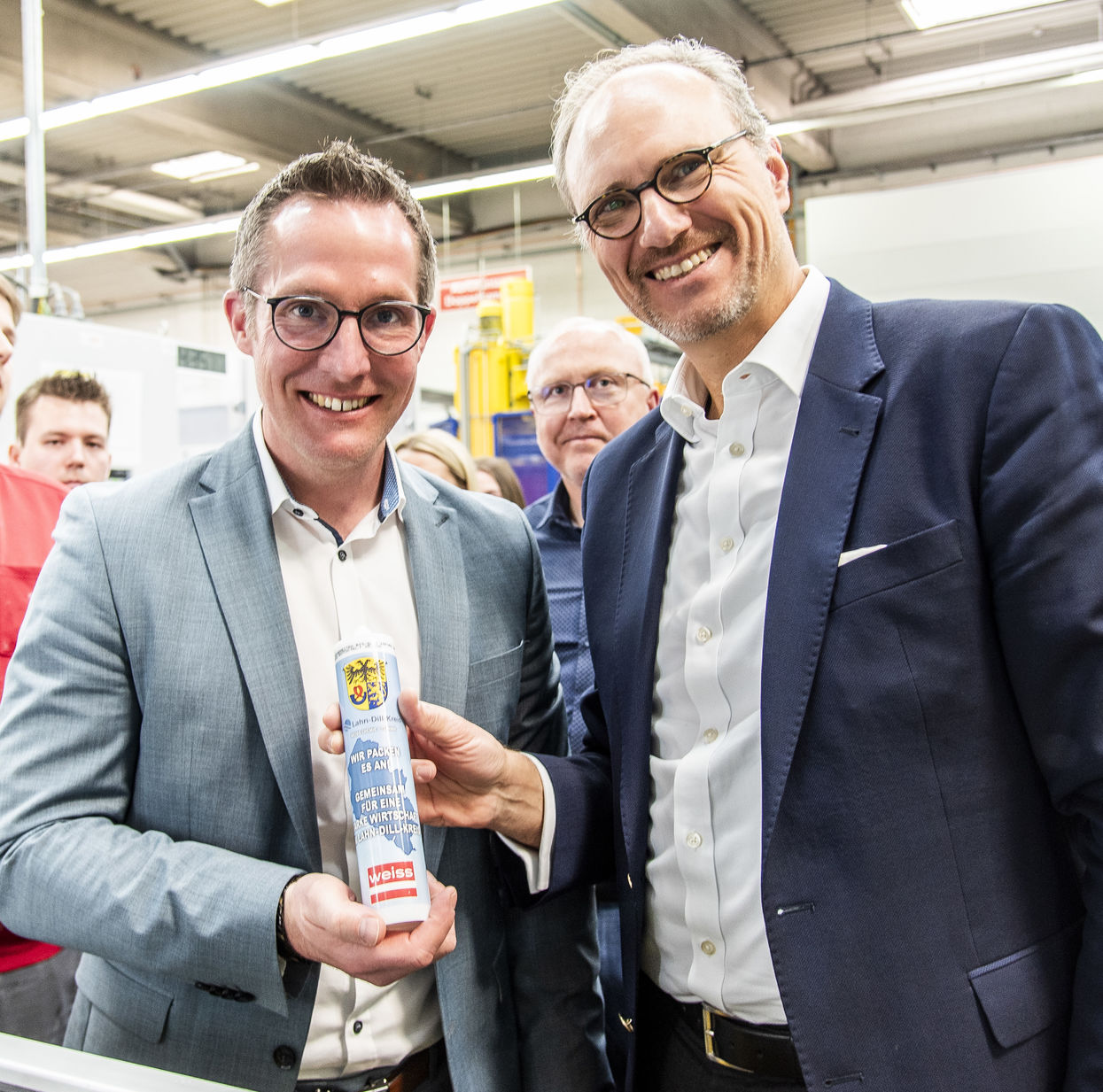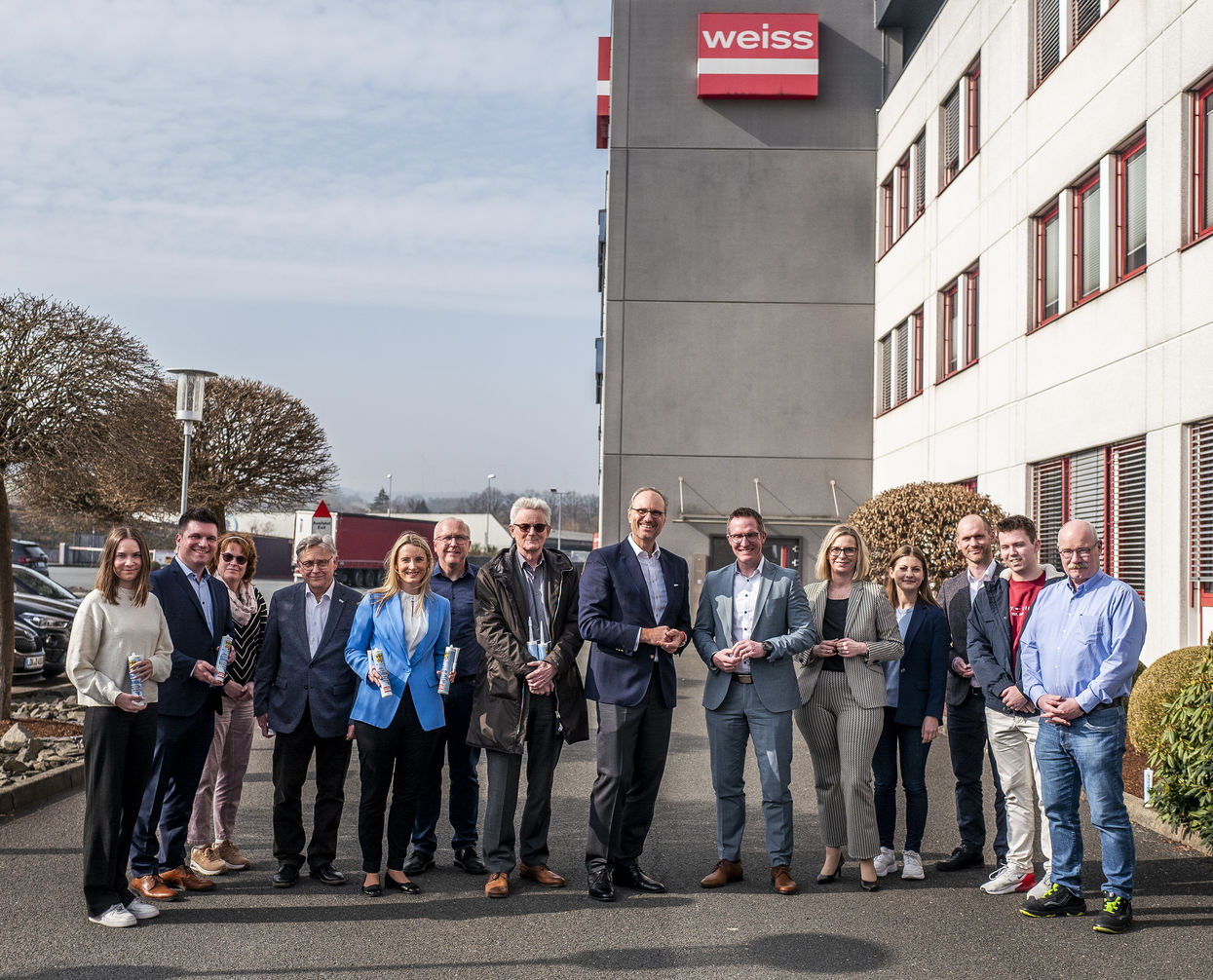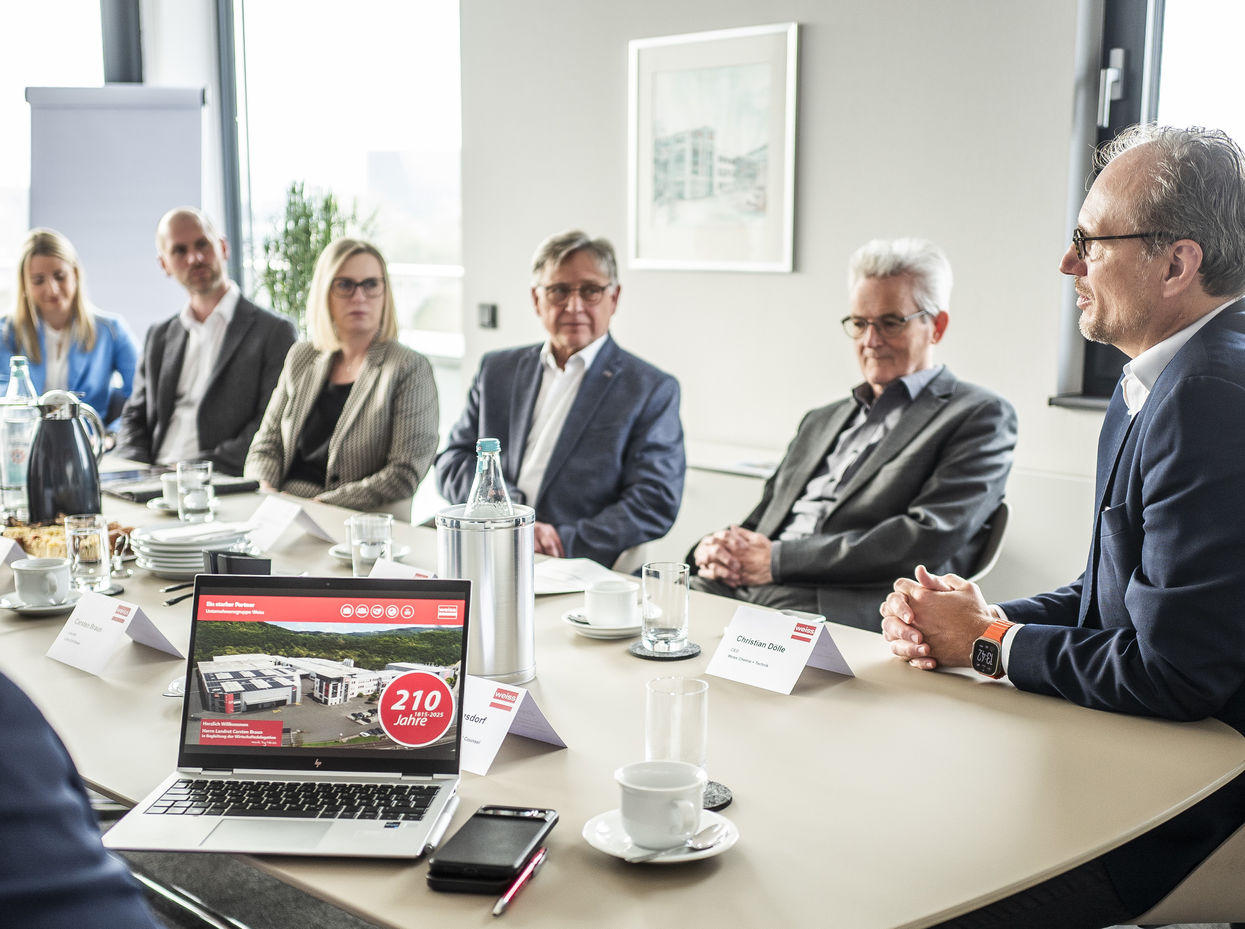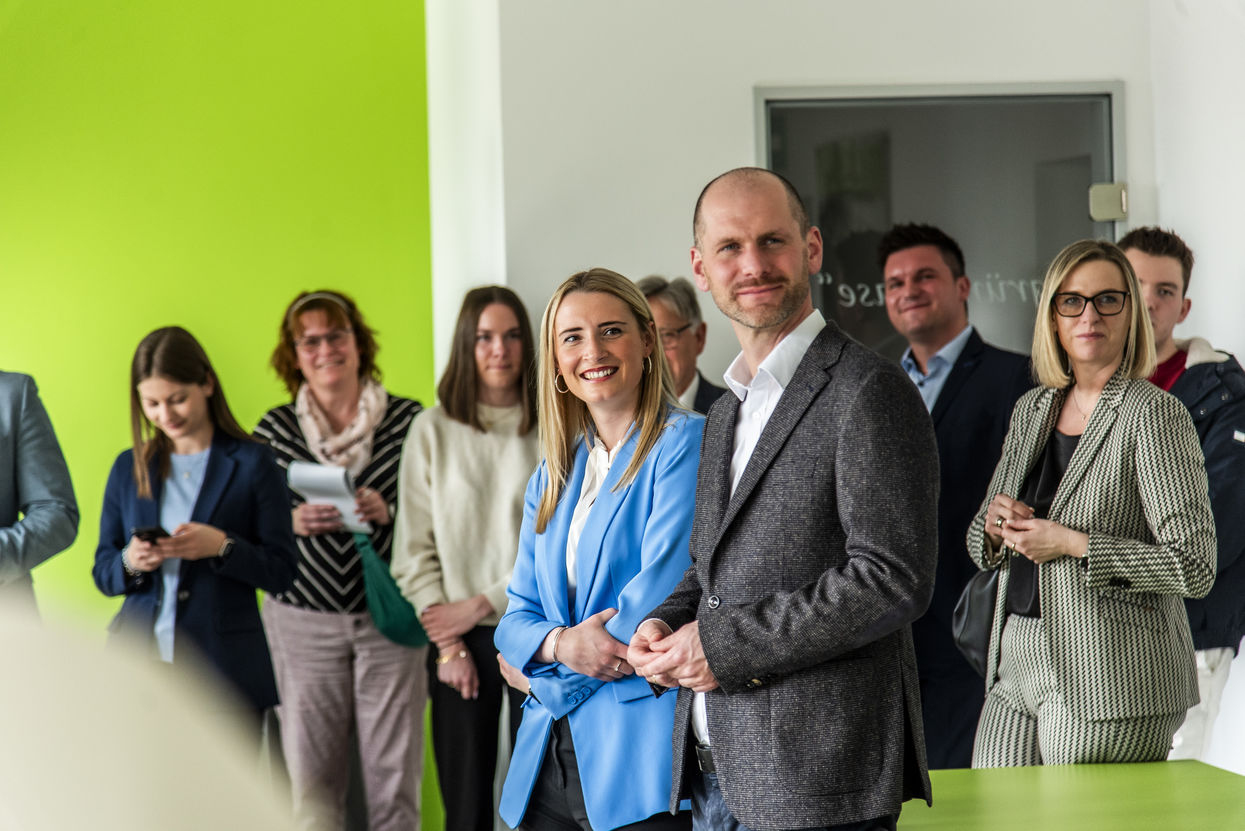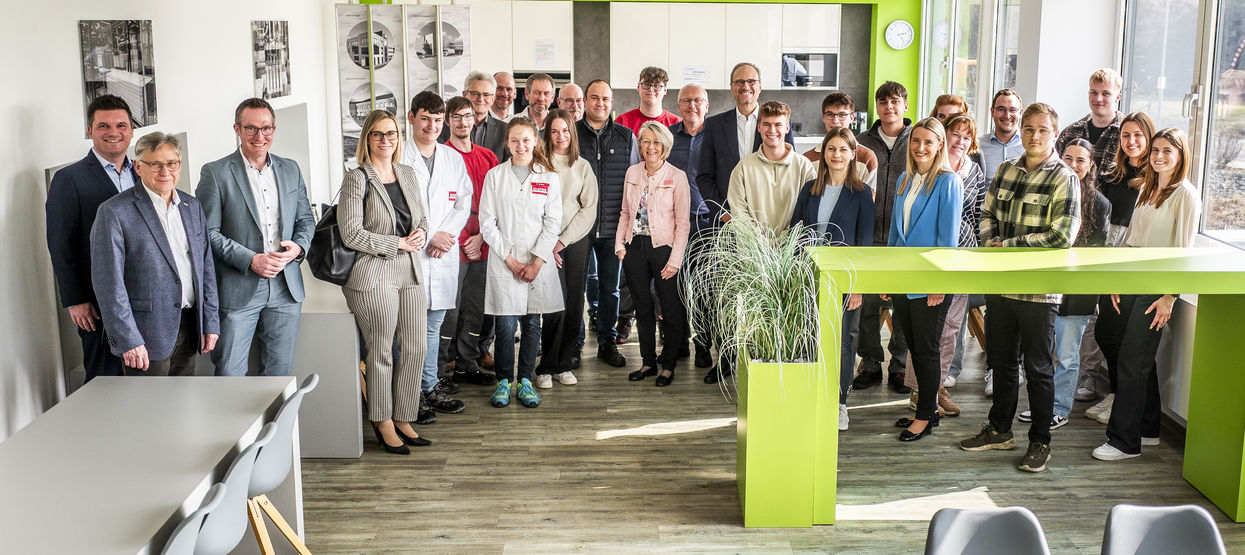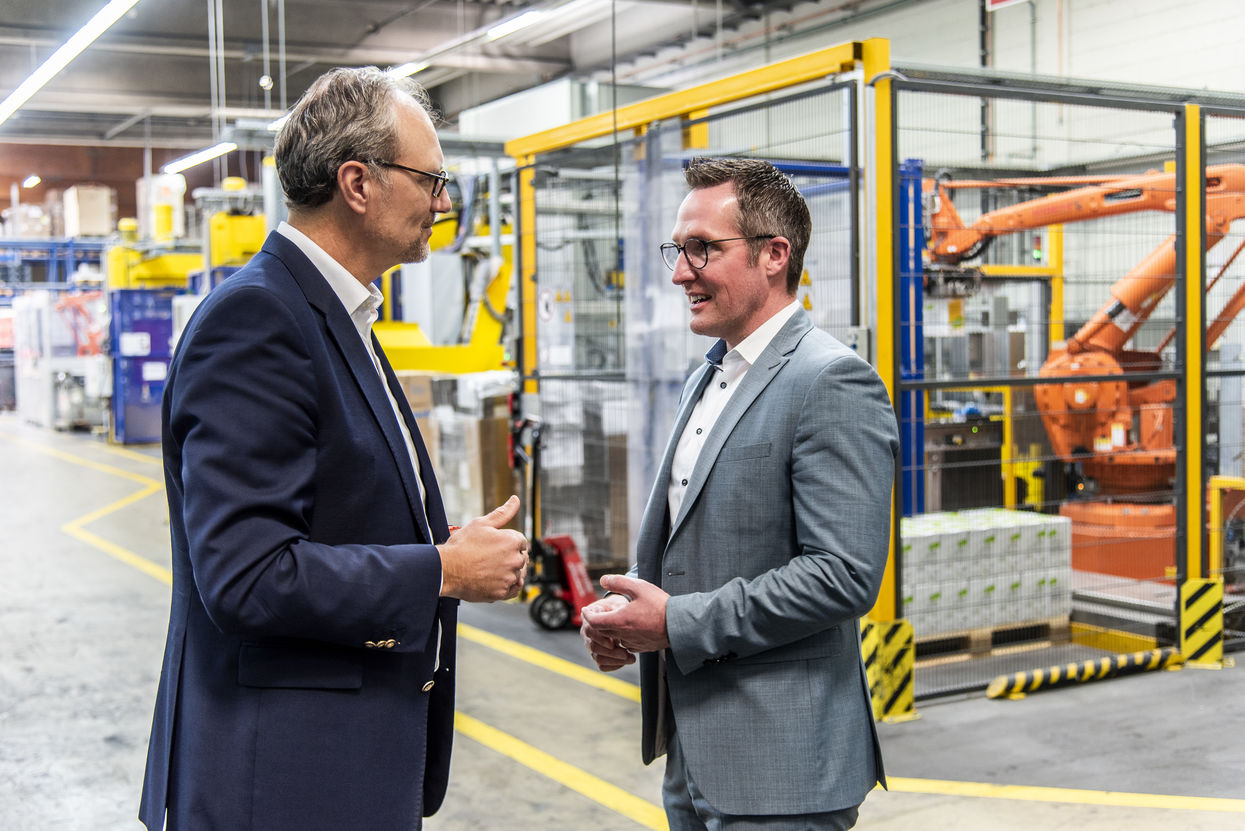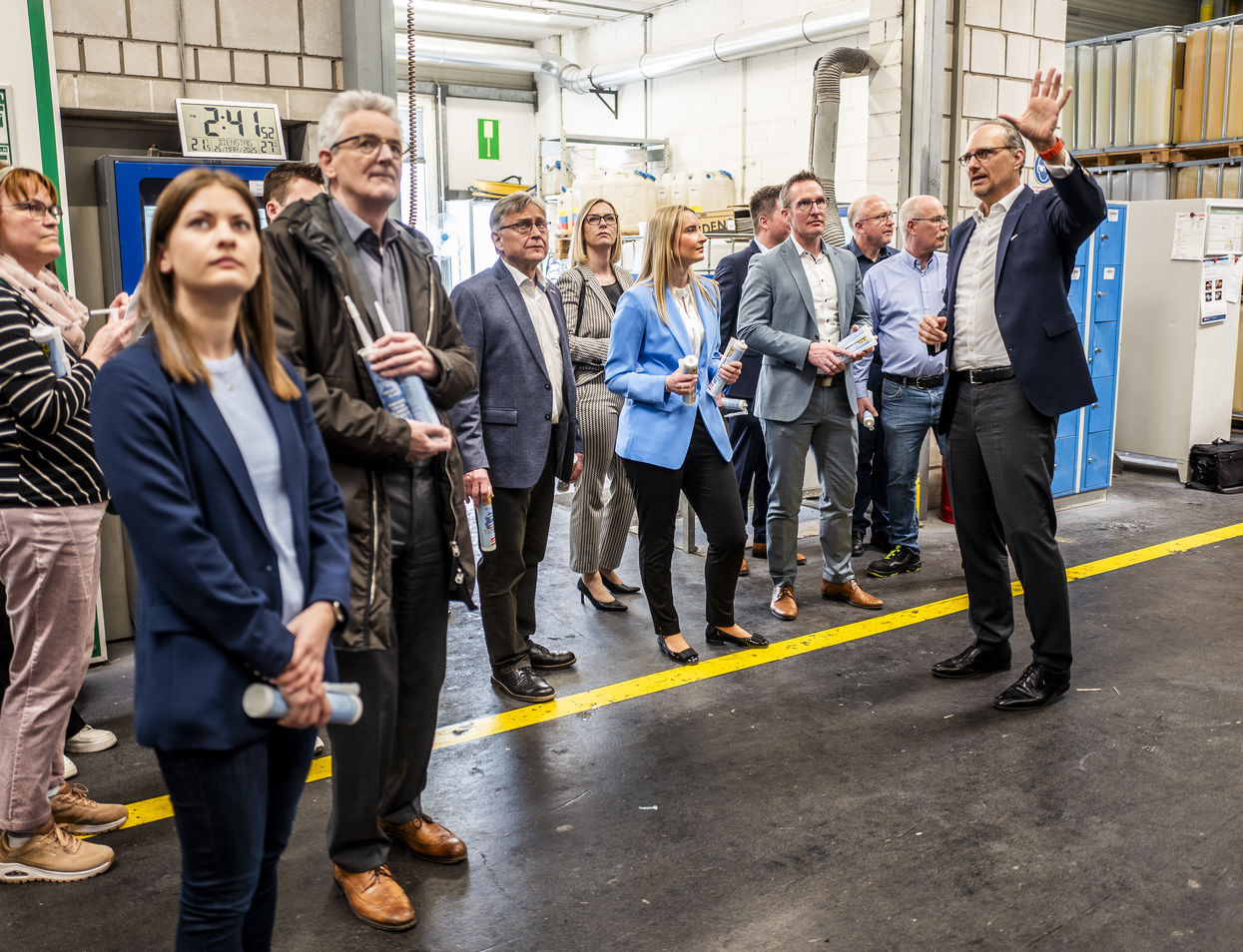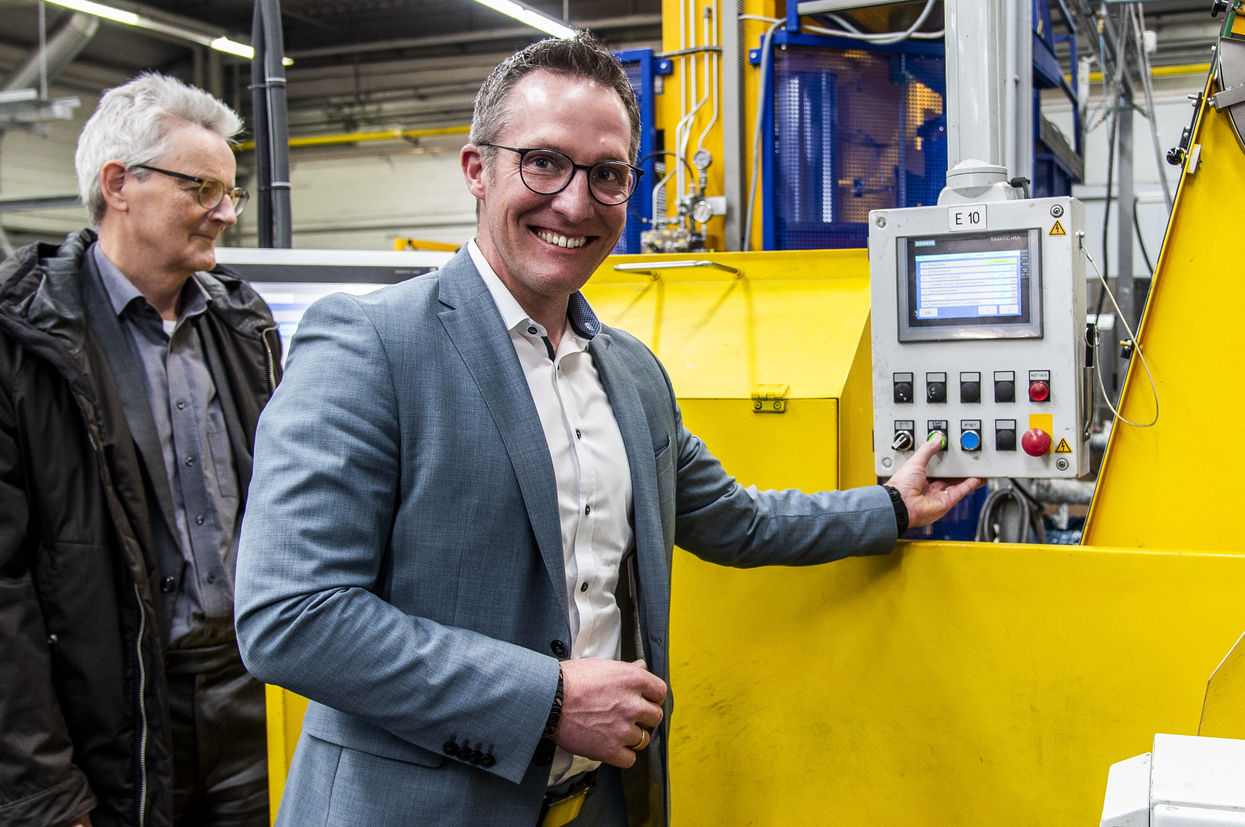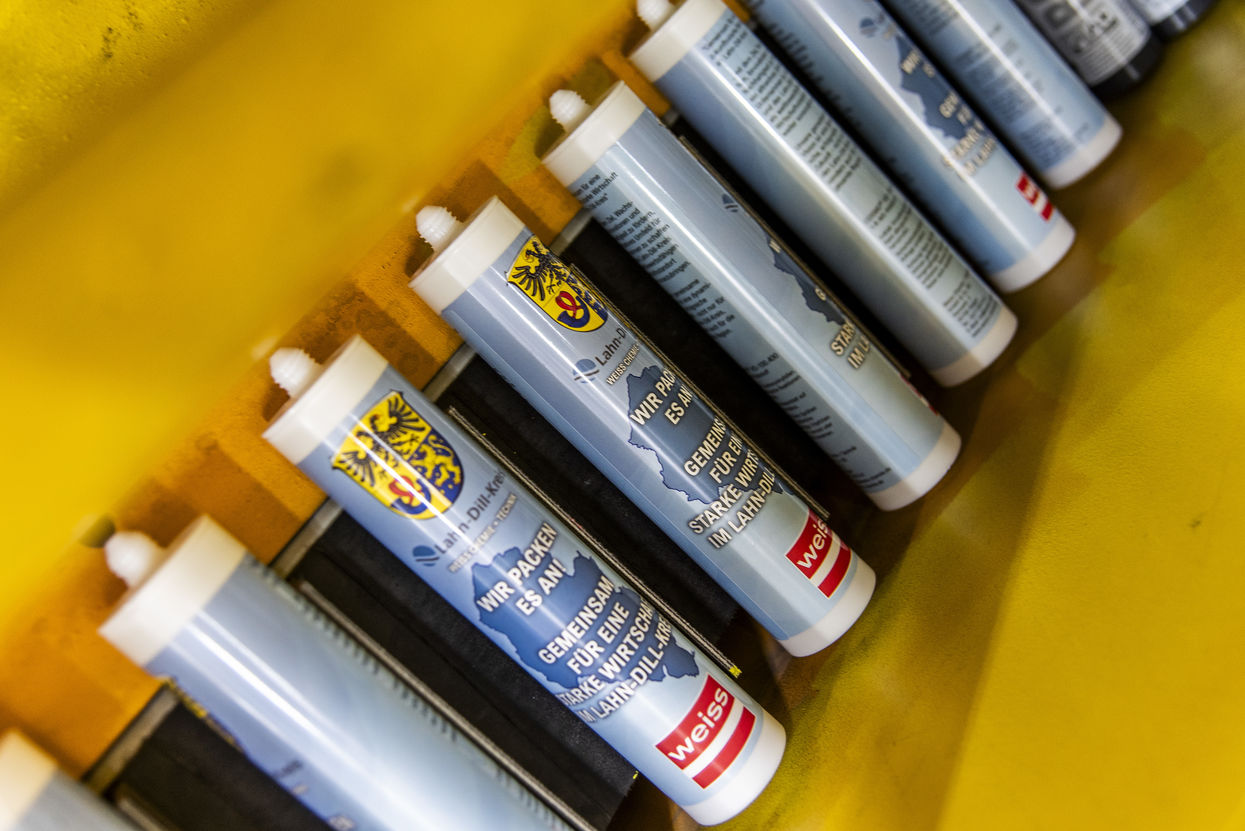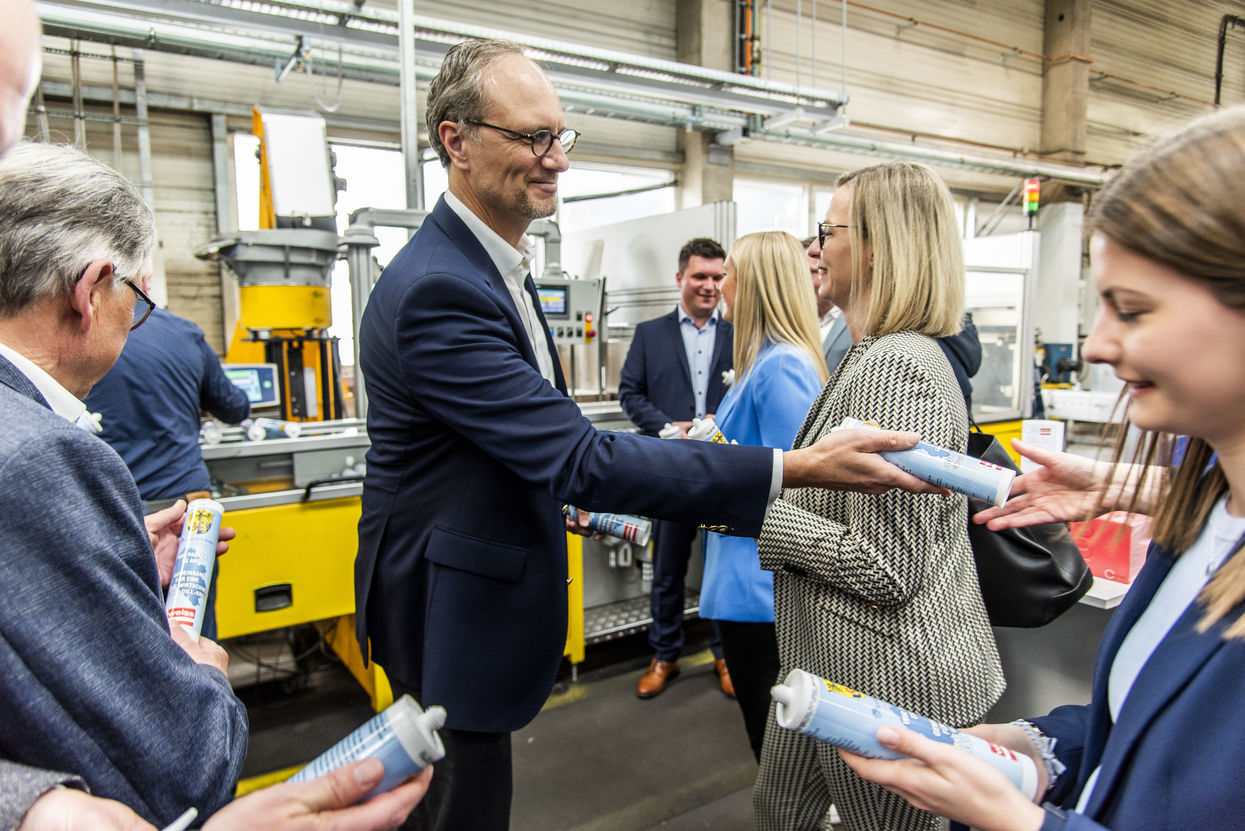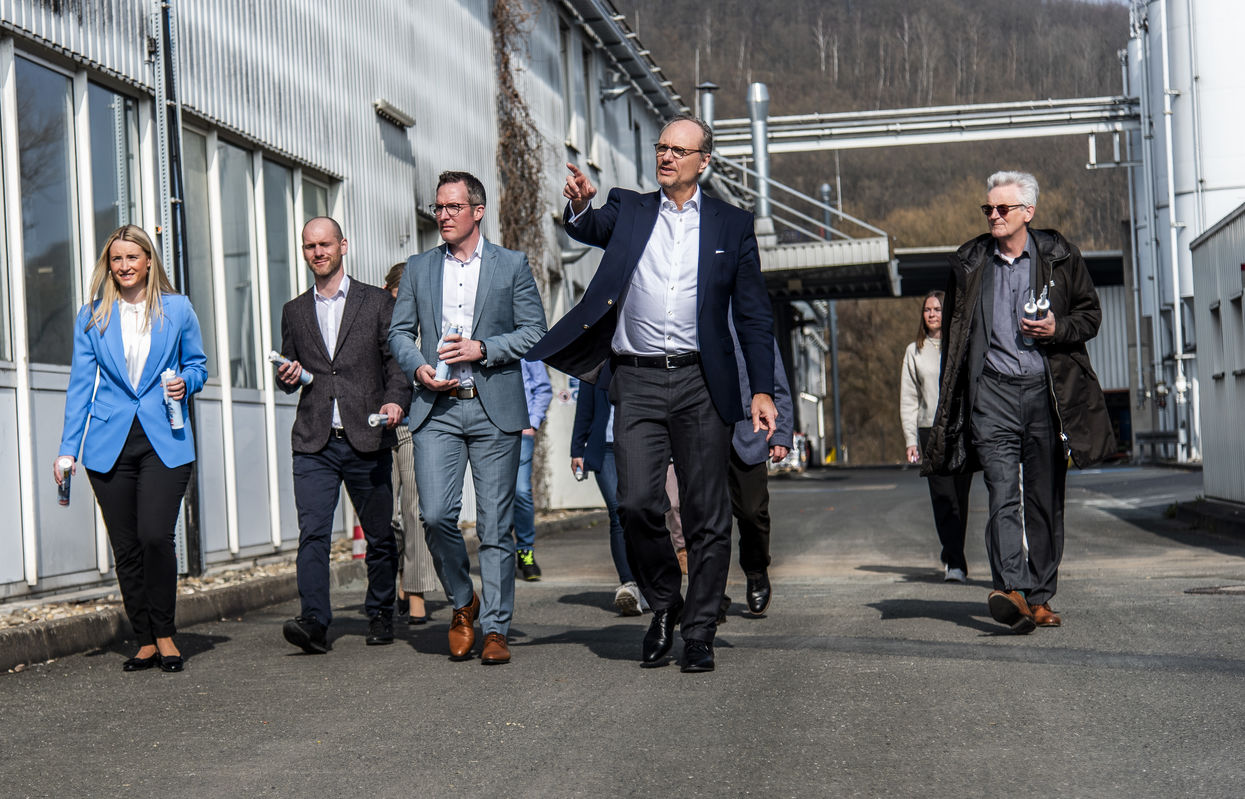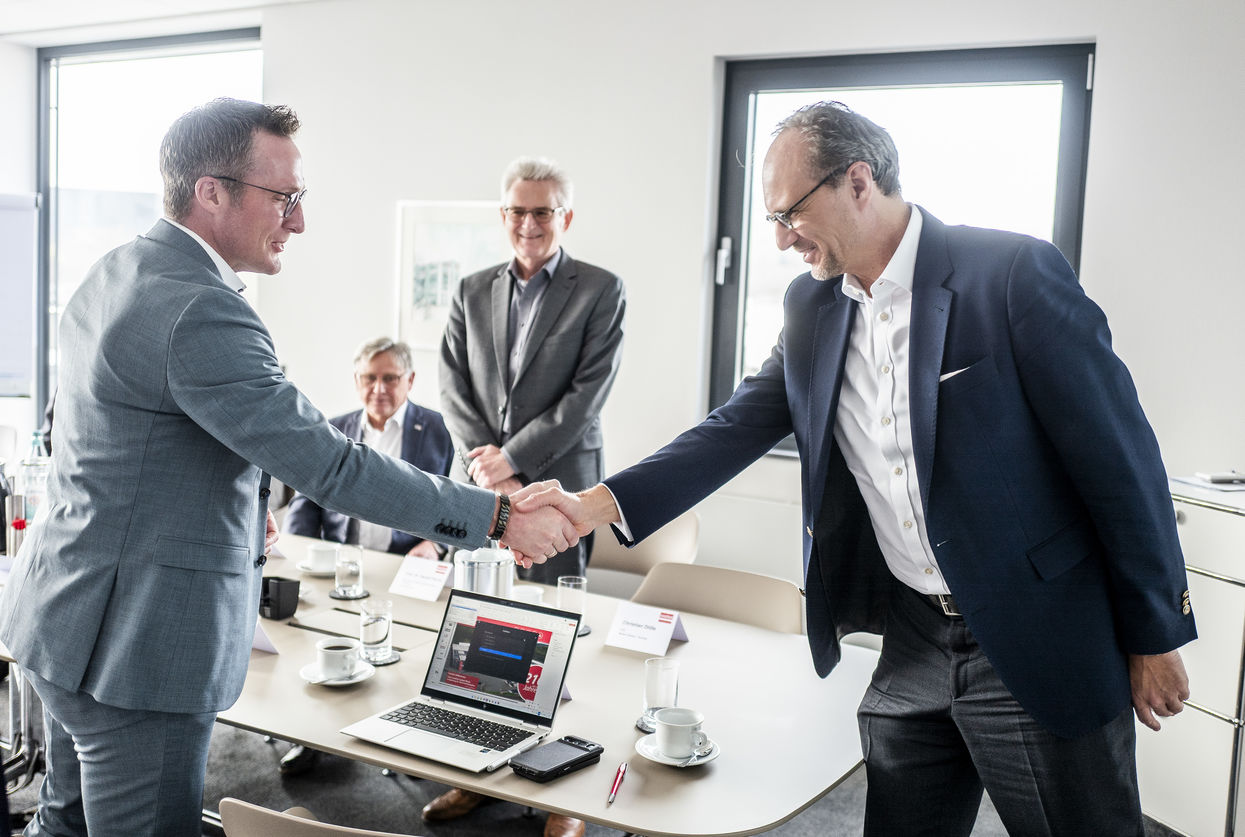Your advantages

District economic development agency visits Haiger-based company Weiss Chemie + Technik
Weiss Chemie + Technik, the second oldest company in the Lahn-Dill district, is celebrating its 210th anniversary this year. The traditional company is also facing some challenges, such as rising energy and production costs in Germany as well as increasing competition, particularly from China. Currently in the third century of its company history, Weiss Chemie + Technik is going through a decisive transformation process. The business delegation of the Lahn-Dill district, led by the District Administrator, Carsten Braun, and District Head of Economic Affairs, Prof. Dr. Harald Danne, visited the company in Haiger to exchange views on these developments and challenges.
Innovation as the key to the future
Weiss Chemie + Technik specialises in three business areas: Adhesives and sealants, sandwich and façade elements as well as cleaning agents. Although the main customer base is found in the construction industry, industrial companies, the automotive and shipping industries also use the products. In order to remain competitive, the company relies on innovation and increased efficiency. There are plans to set up an innovation, production and skills centre.
Despite high energy costs, the company makes good use of its possibilities: Photovoltaic systems already cover 70 to 80 percent of their own energy needs. At the same time, processes are constantly being optimised with a view to remaining competitive. "We are making our company fit for the future," says CEO Christian Dölle.
Attracting and retaining skilled workers
Training was also an important topic of conversation during the company visit. Weiss Chemie + Technik offers five apprenticeships, with all trainees coming from the region. Those who complete their training there have a good chance of being kept on as an employee. "Some trainees have reported that they deliberately decided against studying and opted for an apprenticeship instead in order to gain direct practical experience and actively participate in developments," explains Sven Ringsdorf, Vice President HR and General Counsel at Weiss Chemie + Technik.
Despite the good work by these juniors, there are bottlenecks. "Especially in the areas of IT, accounting, controlling and supply chain management, the shortage of skilled workers poses major challenges for us," says Ringsdorf.
Less bureaucracy, more pace
During the company visit, it became clear that the bureaucratic hurdles in particular cause the implementation of future plans to slow down time and time again. "The companies in our region are the backbone of the economy. We want to support them. As such, we must consider our possibilities within our own scope of action," says Carsten Braun. To which Dr. Harald Danne adds: "We are actively reaching out to companies to find out where they are getting stuck and how we can help. Administration and business must work together, rather than against each other."
